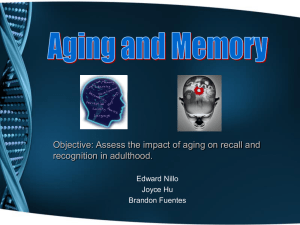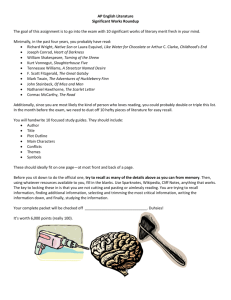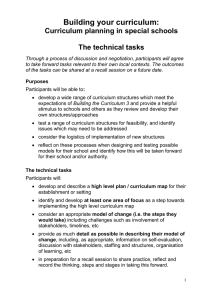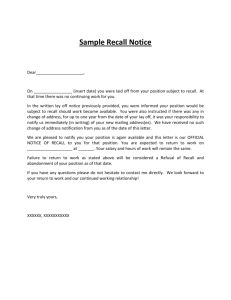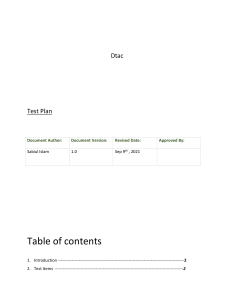11-3: Aging and Memory Linrun Li Alex Fratzke Theresa Toledo
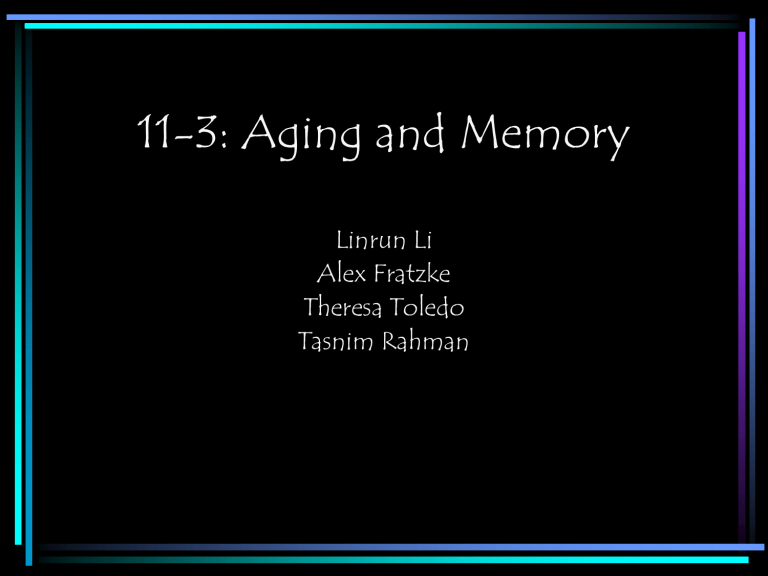
11-3: Aging and Memory
Linrun Li
Alex Fratzke
Theresa Toledo
Tasnim Rahman
Teen Memory
• When people are asked to recall something important that has happened in the past, they tend to recall things from their teens or twenties
• In 1990 Thomas Crook and Robin West did an experiment on 1205 people and were asked to learn 14 different names
• At the end of the experiment all participants were asked to recall the names at 3 different introductions. After each introduction the younger participants had the most recollection of the names they had memorized
Aging Memory
• In a memory study, it was shown that younger adults were better at recalling, but age did not affect recognition memory
• For meaningless information, the older you are, the more likely you will forget
• Older people’s capacity to learn and remember skill decline less than verbal recall
Prospective Memory
• - Prospective Memory remains strong when events help trigger memories. Such as when walking by a convenience store, and then triggering a "...pick up milk" memory.
• - Time-based tasks are more challenging for older people. Habitual tasks are even more challenging (such as remembering to take medications three times daily.)
• - Through our later years, we continue to diverge.
Meaning that, a twenty year old may differ widely in their abilities to learn/remember, but seventy year olds differ much more.
